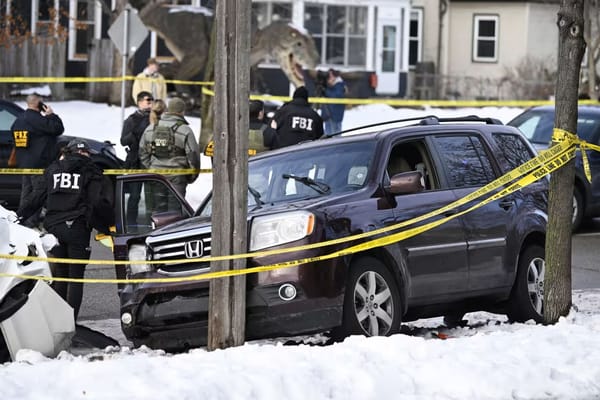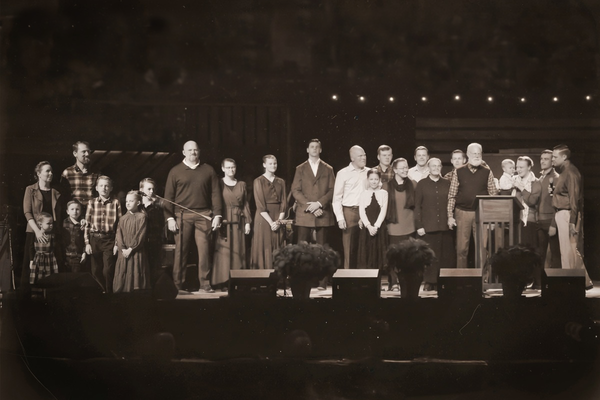At the Crossroads of Pain, Truth, and Love
We long to walk in truth and mercy. When pain is real, we want to hear, repent, and grow. When lies attack, we will stand firm in defense of our families and faith. Above all, our path is love—seeking healing at the cross, where mercy triumphs over judgment.

Dear church family and friends,
I’m not short on things to say this week; I’m short on words small enough to carry them without losing their meaning. Something unprecedented happened a few days ago, and I’m grateful for it. A man who once walked with us—and left nearly ten years ago—reached out. He is not a friend. His criticisms were sharp, and his memories of us were painful for me to hear. But he did what so few do: he spoke to us honestly, face to face.
He said there are sincere people—people of integrity—who are not lying, not slandering, not weaponizing pain, but whose legitimate hurts and questions feel crushed under the weight of our church’s public defense. And I had to admit: he may be right.
Whenever you are under attack, your eyes lock on the deadliest threat. Your instinct is to shield your children, to guard the flock, to save what is precious. For us, that threat has been the horribly irresponsible and willfully dishonest misrepresentations hurled against us—accusations of abuse, criminality, cover-up, and other unspeakable atrocities.
Let’s be perfectly clear: we as a congregation know what it means to be hated. We know what it is to be screamed at in public, threatened with violence, our church family mocked and dehumanized as an “evil cult” unworthy of decency or even the right to exist. We have heard people boast of urinating on my father’s grave. We have received obscene, doctored images depicting our ministers’ faces pasted into acts too vile to describe. We have endured prank calls at all hours of the night, dozens per minute, meant only to torment those of us who keep our phones on for the sake of serving the flock. And this says nothing of the stress and emotional fatigue caused to families, and even little children, whom our abusers have made afraid.
And yet, I was rightly challenged by this individual who met with me. In reflecting on our exchange, I could see how, in my previous sharp and public repudiation of lies and hatred, I may at times have caused others—those with real wounds and sincere questions—to feel unheard or dismissed. For that, I am truly sorry. If you love the Lord and desire to walk in His love, but our defense made you feel unfairly lumped in with malice, I ask your patience and your grace. We want to hear from you. We want to reconcile and repent where it is needed. Above all, we want love to prevail.
Healthy Ways to Seek Healing
What are the right paths forward when you feel wronged and hurt? Do we ask for a meeting? Write a letter? Request a debate—private or public? To my knowledge, we have never turned down a serious conversation, never ignored a substantive letter or list of questions. We have apologized—dozens of times—and we will keep apologizing as long as we have breath. We are still reflecting, still changing, still learning. We will do so until the Lord returns, because we are human, and perfection is not yet ours.
Some say we were too forceful in discipline, too controlling in personal mentorship, or simply mishandled matters out of inexperience or blindness. Sometimes that’s true. And sometimes, because legitimate pain doesn’t make “news,” it gets braided to the malice of others who stretch small truths into big lies. That is human nature: when you’re hurting, you want your enemy to fall. But malice never heals. “The anger of man does not produce the righteousness of God” (James 1:20).
Two Very Different Camps
We must be precise here. There are two very different groups:
- Those with integrity who are hurting. To you, our ears are open. Our arms are open. We want to hear you. We want to repent where that is called for. We want to learn from your pain.
- Those who traffic in lies and weaponize pain. To you, we will not yield. We will fight with everything we have to defend our families, our children, and the truth of the gospel. And we will take it as far as necessary—including in court—until truth prevails.
Please don’t confuse the two.
What Correction Looks Like
For fifteen years, much of my labor among leadership has been devoted to correcting imbalances in discipleship and discipline. I’ve made my own mistakes and sought forgiveness for them. But as a body, by God’s grace, our course-corrections have borne fruit: a rising evangelistic heart, more than a dozen congregations planted across the world in the past dozen years, and a leadership family now numbering around a hundred ministers who labor with unity and fatherliness.
Sure—some say, “Too little, too late.” But I say: do not throw the baby out with the bathwater. And the baby is not our mistakes—the baby is the fruit: faith, joy, flourishing, lives transformed by the love of God. As long as that remains, we can keep changing the murky water of human error. We can keep repenting, keep adjusting, keep growing.
And to be clear, I am not yet attempting here to litigate every concern. Many matters have already been dealt with directly—policies revised to reflect a gentler, more balanced approach to church discipline, and new training and guidance implemented across other vital areas of the church and leadership. I also expect to address more of these matters publicly in due course. For now, my purpose is to lay out the framework of heart and spirit I believe Christ calls us to embody.
On Blame, Tragedy, and the Human Condition
We live in an age that loves institutional blame. But no church can bear responsibility for everything any family member under its care may do. Some tragedies leveraged against us are not “church problems”; they are human problems—found everywhere under the sun. Adolescence is hard everywhere. Illness and sorrow appear everywhere. Sin and sinners appear everywhere. The question isn’t whether darkness exists; it’s whether light prevails.
Is there a place where love keeps winning? Where people keep humbling themselves? Where we gather at the old rugged cross, bow our heads, bend our knees, and plead for mercy and grace from the only wise God? If there is such a place—and I believe there is—then there is hope.
“Mercy triumphs over judgment,” James tells us (James 2:13). Or as the Psalmist sings, “Mercy and truth have met together; righteousness and peace have kissed” (Ps. 85:10). We must bring both—truth and mercy—to the table, or we will break the table.
A Path Back, A Line in the Sand
To our former members: if we wronged you, we want to make it right. If you feel unheard, we want to hear you. If we mishandled something, we want the grace to repent and repair. We are changing because we are growing—and we see where we drifted off course.
To those intent on destruction, hear this with equal clarity: we will defend our children and our people if it’s the last thing we do. We are prepared to place everything on the line to expose lies that do not restrain evil but harm what is good, and that ultimately drag the name of our God through the mud. Where necessary, we will contend in the courts; we will labor until truth, not rumor, stands.
Where We Meet
I feel the burden of both sides—the faithful who have walked humbly for decades, and those who left and even cast away their faith. I cannot reconcile us; I’m not the crucified One. Only His scars reconcile. So let us meet at the cross—where swords and spears are laid down, where every one of us knows we need mercy, and where mercy triumphs over judgment.
If you want that meeting, our arms are open and our ears are open. If you want war, we will not surrender the truth. But if you want healing, we will sit with you—one conversation at a time—until mercy and truth meet again.
Until He comes, we will keep correcting, keep growing, keep forgiving, and keep telling the truth in love. That is our path. That is our promise.
With love in Christ,
Asi





